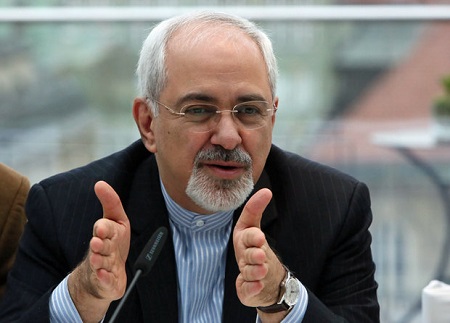TEHRAN – Foreign Minister JavadZarif has said failed Islamic governments systematically resorted to blame shifting, effectively turning a blind eye on their own inefficiencies, according to Mehr News.
Mr. JavadZarif addressed, in ShahidBeheshti University, the International Conference on Geopolitical Crises in the Islamic World on Monday. He criticized some Islamic governments for their sheer incompetence and failure which he believed was the major sources of conflict and challenges to their very legitimacy and identity; “accurate understanding of the international community underpins any influence intended; for any solution, also the problem should be understood accurately; in a current phase of transition in international relations, challenges and opportunities are changing in a constant state, and players would use opportunities should they grab the time; they may fail in turning others’ challenges to opportunities of their own; such is the state of affairs for the Islamic world in general,” Zarif emphasized.
“In a bipolar world of stationarity, little dynamism would secure a player’s place; however, it is no longer the case with a fast-changing world, where Islamic world shares some characteristics with the international community; a major challenge is multiplicity of players, which surprisingly, provides an opportunities for players, once passively beholding the international scene, to assume new roles, where non-state actors have also been assuming international roles,” he told the conference.
Zarif however warned against error of judgement in part of players by illustrating the case of Saddam Hussein of Baathist Iraq which brought him downright debacle [in initiating war against Iran]; “viewed as a whole, these challenges, Islamic world faces a combination of internal and external challenges which have contributed to the current state of turmoil; extremism, terrorism, ethnic and sectarian rifts are internal components of the challenge; they readily give themselves to a keen eye seeking for clues,” he asserted. “Foreign impositions also play a significant part in shaping the status quo in Islamic world.”
“To encapsulate political, social and no less important discourse challenges, we would come to failure of states in the majority of Islamic countries where they systematically fail to respond properly to their respective civil society in dealing with their demands; this is the failed nation-state across the Islamic world proper; for example, the challenge has precipitated a failure in addressing Israeli-Palestinian conflict. Instead, they provide the Islamic world with challenges,” he lamented.
“This is also a crisis of identity for failed states; resorting to blame shifting would challenge the governments further, leading them to more steep precipices in an edge prepared by their miscalculation of the realities out there in the international community; sectarian conflict and ethnic hatred are mere deflections of the inefficiency in some states of the Islamic world, which creates an imagined enemy,” Zarif told the meeting, turning to Iran’s influential role in the region which he believed should be deemed as real and not figment of imagination. “I believe ourselves as well as the Islamic world should come to terms with this position; now, we would effectively use non-state actors as instruments of our power; Hezbollah of Lebanon provides the telling example of a non-state actor in reshaping the political arena in the Middle East, with far-reaching impact.”
M.Wassouf

